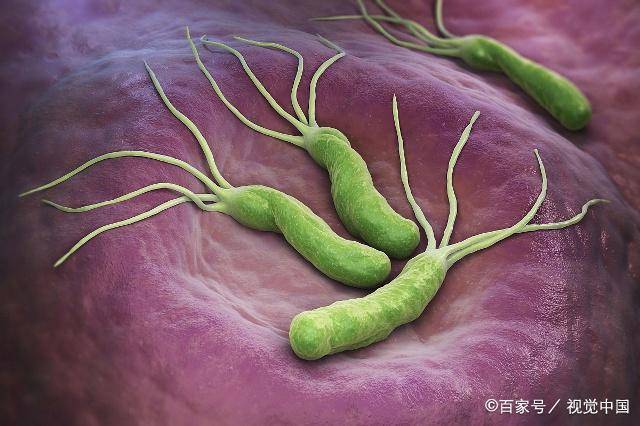Health preservation, happy life, here is the health broadcast machine, I am a health expert, taking you together to scientifically maintain health!
The stomach is the largest digestive and absorptive organ in our body, and it is also a very delicate organ that needs proper care in our daily lives.
However, many people have developed unhealthy habits in their daily routines and diet, leading to a significant decline in stomach function. Moreover, if one does not pay attention to food hygiene in daily life, it may also lead to Helicobacter pylori invading the stomach.
Helicobacter pylori is a highly parasitic bacterium that severely damages the stomach mucosa, easily causing various stomach diseases, negatively impacting daily life and work.
What changes occur when the body is infected with Helicobacter pylori?
Stomach ache
If Helicobacter pylori invades the body, it will reside in the stomach mucosa, causing damage. This can lead to gastritis, stomach ulcers, and various stomach diseases, often resulting in stomach pain, causing a lot of distress to many people.
Acid reflux
If invaded by Helicobacter pylori, the secretion of stomach acid will increase. The excessive secretion of stomach acid can easily lead to acid reflux, accompanied by nausea and vomiting, adversely affecting daily life and work.
Bad breath
If the stomach is infected with Helicobacter pylori, the mouth will signal you by often having oral odor and bad breath.
This is due to the invasion of Helicobacter pylori, affecting the digestion and absorption function of the gastrointestinal tract, leading to the accumulation of toxins and waste in the body. Bacteria breed and ferment, causing the release of foul-smelling gases.
If the above three situations are significant, do not hesitate. This may be a sign of Helicobacter pylori invasion. It is recommended to promptly treat the stomach infection, ensuring the body’s health. Regularly eat the “four treasures” to nourish and eliminate bacteria.
The nemesis of Helicobacter pylori has been found; persistence in consumption will gradually improve the stomach and freshen the breath.
Onions: Many people may not like to eat onions in daily life due to their strong pungent taste. However, they contain rich sulfides and flavonols, which can effectively inhibit the proliferation of Helicobacter pylori, alleviating gastritis and stomach ulcers.
Cabbage: Cabbage also has good anti-inflammatory and antibacterial effects, helping to suppress the growth of Helicobacter pylori, playing a good role in stomach maintenance and eradication of bacteria, aiding in the repair of damaged stomach mucosa, and assisting in the healing of stomach ulcers.
Honey: Honey water also has certain anti-inflammatory and antibacterial effects, helping to inhibit the growth of Helicobacter pylori, protecting the stomach’s health, and preventing the occurrence of stomach diseases.
Elderberries: Elderberries also have certain stomach nourishing and bacteria eliminating effects because they contain rich anthocyanins, which can effectively inhibit the growth of Helicobacter pylori. Moreover, they can help repair damaged stomach mucosa, improve stomach digestion and absorption function, and freshen the breath.
I hope this article can assist you. Thank you for reading and supporting it, wishing you good health.


